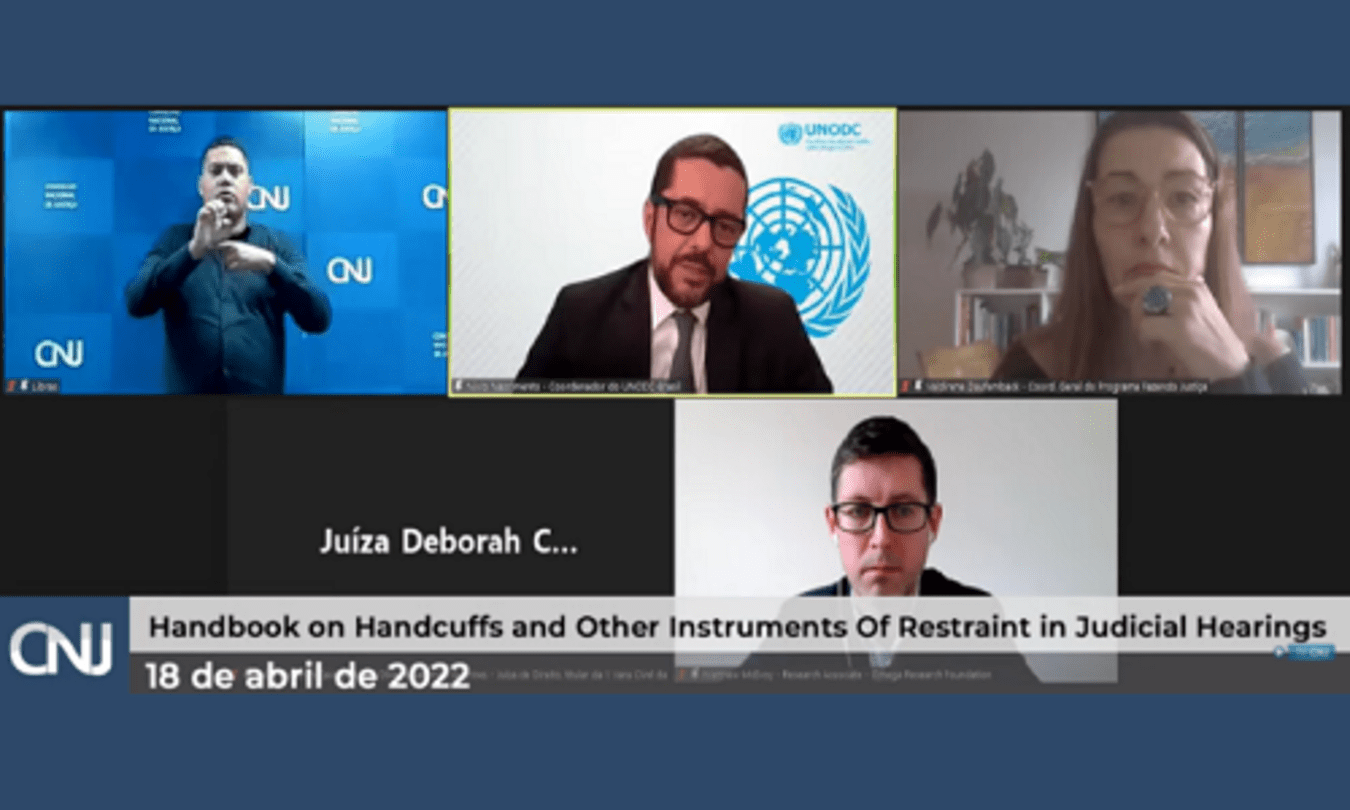
Brasilia, 18 April 2022 – On 18 April, the United Nations Office on Drugs and Crime (UNODC) launched the English version of the “Handbook on Handcuffs and Other Instruments of Restraint in Court Hearings”.
The event took place in the context of the Fazendo Justiça Programme, implemented by the National Council of Justice (CNJ) in partnership with the United Nations Development Programme (UNDP) and UNODC, with the support from the Ministry of Justice and Public Security (MJSP/DEPEN).
Read the English version of the Manual: “Handbook on Handcuffs and Other Instruments of Restraint in Court
The original Portuguese version of the Manual on Handcuffs and other Instruments of Restraint in Court Hearings was launched in 2020. According to the coordinator of the Monitoring and Enforcement Department (DMF), the English version "inaugurates a new phase of the Programme, now proposing international cooperation on themes that are already addressed by the programme".
The Coordinator of UNODC's Rule of Law Unit noted that the necessity of a manual on the use of handcuffs emerged due to the observation of the consultants of the Doing Justice Programme that provide technical support in the field of pre-trial detention hearings in all of Brazil’s Federation Units, noting that, "it was through listening to magistrates from all over Brazil that we realized the need to address the issue of handcuffs technically and based on evidence and international agreements.”
Representing the international organization Omega Research Foundation, which contributed to both versions of the publication, Matthew McEvoy said that restraint instruments can cause temporary and permanent physical problems, such as joint and nerve damage, and should therefore only be used in exceptional conditions.
UNODC pointed out that the manual is yet another technical tool to promote human rights, highlighting that the manual will be useful in several countries and allow for further inter-regional cooperation.
"The Handbook launched today presents parameters and practices that are the basis for defining a proposal that is internationally accepted," the International Committee of the Red Cross (ICRC) stated.